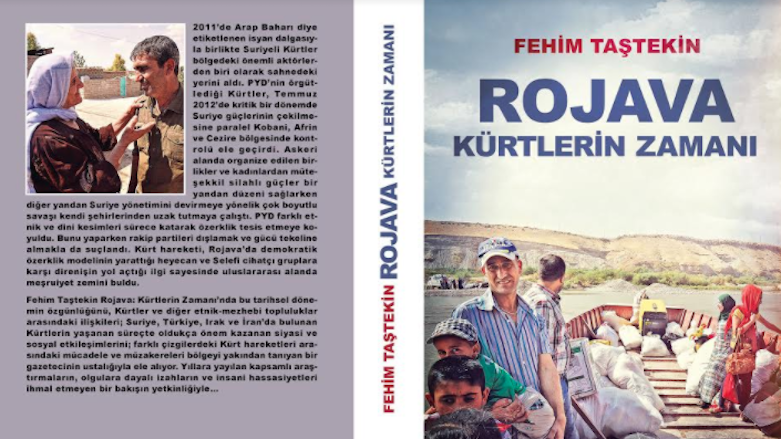Books on Kurds banned in Turkey

ERBIL, Kurdistan Region (Kurdistan24) - A Turkish court in the Kurdish province of Adiyaman recently decided to ban and confiscate three books, among them one on Syrian Kurds, claiming they constituted a threat to Turkey's territorial and national integrity.
Fratricide: Kurds' Civil War (Faysal Dagli, 1994), Kurdish History (Aytekin Gezici, 2013), and Rojava: The Time of the Kurds (Fehim Tastekin, 2016) were the books the court deemed to be against the Turkish state, its laws, national security as well as "public morality."
Speaking over the phone to Kurdistan 24 on Thursday, author of the latter one, journalist Tastekin described the whole legal process, a case against alleged members of Kurdistan Workers' Party (PKK) who held the books, as nonsensical.
A copy of the October 2-dated court order Tastekin shared with Kurdistan 24 read that the books in question, all in the Turkish language, were not to be printed, distributed and sold again as security forces were tasked with confiscating those on sale and in printing houses as they were evidence of a crime.
Turkish authorities have previously considered legally published books about Kurds as evidence of criminal conduct as in the case of a US consular employee, Hamza Ulucay whom the police arrested in February.
Tastekin said his book, a collection of articles, interviews, and accounts of his travels in Syrian Kurdistan known as Rojava has been legally on sale since its publication last year and the decision to outlaw it was political.
"The political environment is toxic. [President Recep Tayyip] Erdogan's language is one of hate," he said, tying the increasing crackdown on the press, freedom of speech and civil society to the head of the republic.
"His rhetoric immediately manifests itself into realities of life. The war on [Turkey's] Kurds, his hostile attitude toward Rojava and Southern Kurdistan all are a part of it," Tastekin explained.
He was referring to Turkey's decades-long conflict with PKK and repeated threats of either invasion or economic sanctions by the Turkish leadership against the Kurds in Syria and Iraq who seek autonomy and independence respectively.
Erdogan's ruling Justice and Development Party (AKP) government used to boast about how it lifted long-standing bans on hundreds of books during its previous terms when Ankara was in serious negotiations with the European Union (EU) for accession as a member state, he reminded.
"My book has already caused trouble for at least six people," Tastekin added.
In one case, police beat a reader in the southern city of Adana and threw away the book, he said.
In others, a well-known columnist for the opposition Cumhuriyet newspaper Engin Aydin in Istanbul, a lawyer in Mersin and a teacher in the capital Ankara were asked why they possessed the book and if they were members of a "terrorist group" in separate legal proceedings against the individuals.
The author said, at this point, he was expecting a criminal investigation--if not detention--of himself and his publishers at Iletisim Books.
Tastekin expressed perplexion over the fact that the Adiyaman court concluded his book and the other two "carried characteristics of a terrorist organization."
"They are not even labeling the book as 'terrorist propaganda' or 'saying it serves terrorists' rather calling the book itself a terror group," he said.
"A book cannot be a terrorist organization."
Editing by Ava Homa

